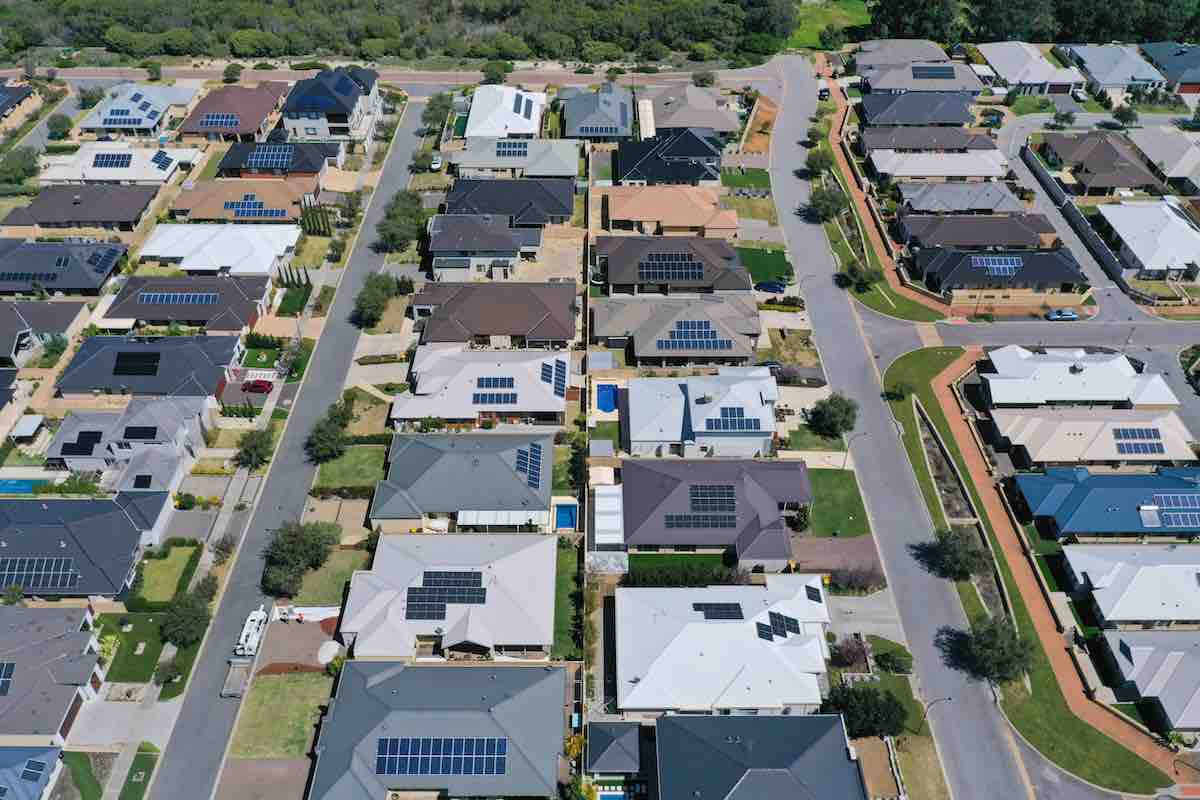 A $532 million investment into putting rooftop solar on social housing could save the families who live in them a collective $129 million a year, according to a new study.
A $532 million investment into putting rooftop solar on social housing could save the families who live in them a collective $129 million a year, according to a new study.The modelling by the Australian PV Institute and the University of New South Wales indicates that retrofitting solar onto the more than 54,000 social and affordable housing properties in the state could host as much as 650 megawatts (MW) / 769 gigawatt-hours (GWh) of rooftop solar – or 1.1 per cent of the National Electricity Market.
That could create annual savings of $860 a year for 150,000 families, with average payback periods of individual systems of less than four years for separate houses, 3.5 years for semi-detached houses, and 5.5 years for apartments.
Radically expanding rooftop solar on government-owned properties could also have benefits for grid stability, as the 2.9 gigawatt (GW) Eraring coal power plant hastens towards the end of tis life in 2025, and mitigate heat island effects.
Western Sydney suburbs feel the brunt of heat island effects, which are created by enormous numbers of houses built with dark roofs, a lot of tarmac and a dire lack of vegetation and waterways which can absorb heat.
One study, published in Solar Energy journal in 2013, suggested rooftop solar could lower temperatures in Los Angeles by up to 0.2C, as most energy is reflected rather than absorbed as heat.
“This is the low-hanging fruit – the government can decide to roll-out solar for social housing from tomorrow as they own much of the stock themselves, and have willing partners in the not-for-profit community housing sector,” said national director of Solar Citizens Heidi Lee Douglas in a statement.
NSW recognises need for energy upgrades
NSW’s recently released Land and Housing Corporation Sustainability Strategy set the priority of increasing solar installations to 30 per cent of housing stock, up from the current 7 per cent, by 2026, and is prioritising properties in far west NSW and regional areas.
Rooftop solar has been recognised by the federal government as an important upgrade for social housing, which offered a $300 million pool to state and territory governments to co-fund energy upgrades for the sector.
To date, Queensland and Victoria have committed to co-contributing to the fund. NSW is expected to clarify its position on the fund when it delivers its budget next week.
“As a community housing provider, BaptistCare NSW & ACT sees firsthand that families and individuals living in social and affordable housing are amongst the most vulnerable in our community to the impacts of climate change and the rising cost of living,” said BaptistCare Community Services & Housing general manager Robyn Evans in a statement.
“Solar deployment for tenants in BaptistCare’s 709 households across NSW could reduce electricity bills, enhance climate resilience, and support a just shift to net zero.”
She says her organisation needs government support to pay for energy upgrades on its 14 housing sites.